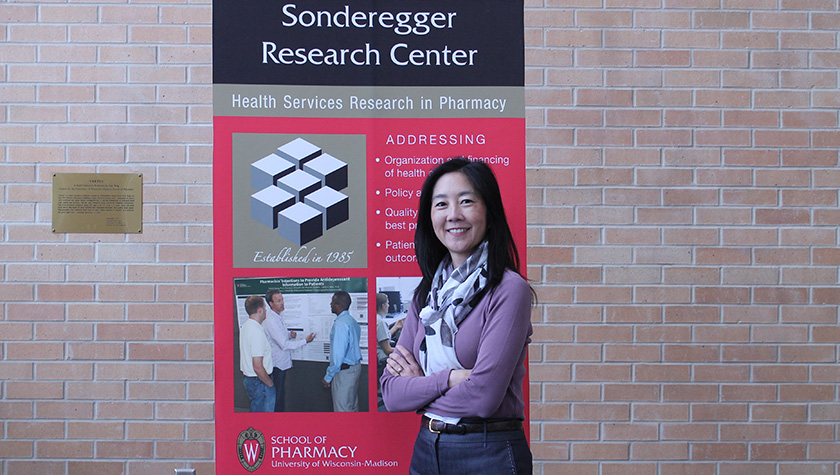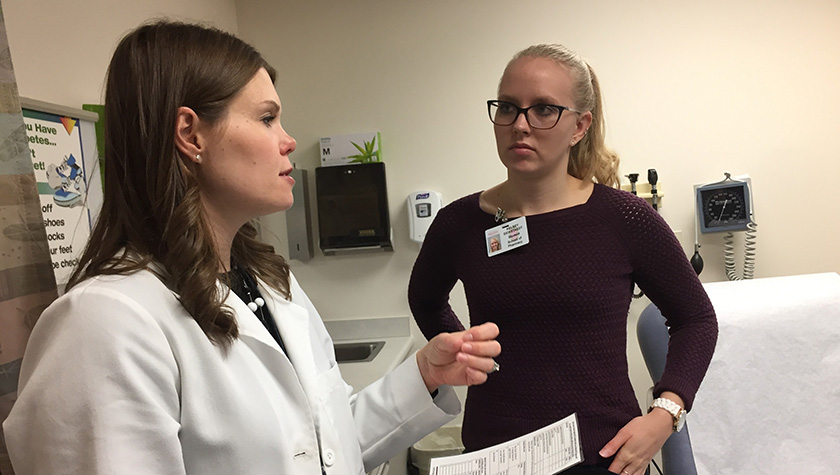Rotzenberg becomes the tenth Teaching Academy Fellow at the School of Pharmacy, continuing a tradition of teaching excellence in pharmacy education By Katie Ginder-Vogel Kate Rotzenberg (PharmD ’07), a faculty associate in the Social and …


Rotzenberg becomes the tenth Teaching Academy Fellow at the School of Pharmacy, continuing a tradition of teaching excellence in pharmacy education By Katie Ginder-Vogel Kate Rotzenberg (PharmD ’07), a faculty associate in the Social and …

Researchers in the School of Pharmacy’s Kwon Lab have been awarded a patent for a promising new therapy with implications for many conditions, such as kidney disease, heart failure, and even COVID-19.

Professor Michelle Chui leads a project to boost the safety of over-the-counter medication selections among older adults.

In collaboration with oncology professor Wei Xu, professors Lingjun Li and Weiping Tang are developing tools to tackle breast cancers that no longer respond to traditional therapies.

School of Pharmacy researchers Professor David Mott and Aaron Gilson examine the barriers and benefits of community pharmacists gaining access to patients’ health histories.

The new schedule and added lab remodel PharmD students’ first year, providing immersive, progressive, and foundational pharmacy experiences.

Here are 3 things to know about the Tang Lab’s work toward antiviral therapeutics targeting a broad range of coronaviruses.

By combing the ocean for antimicrobials, scientists at the University of Wisconsin–Madison have discovered a new antifungal compound that efficiently targets multi-drug-resistant strains of deadly fungi without toxic side effects in mice.

The legacy of Professor Emeritus Dan Rich lives on at the School and in prolific alumni careers.

Assistant Professor Jay Ford collaborates with UW Department of Medicine on grant to enhance and expand telehealth in Wisconsin nursing homes By Arushi Gupta When the COVID-19 pandemic hit the United States in early 2020, …